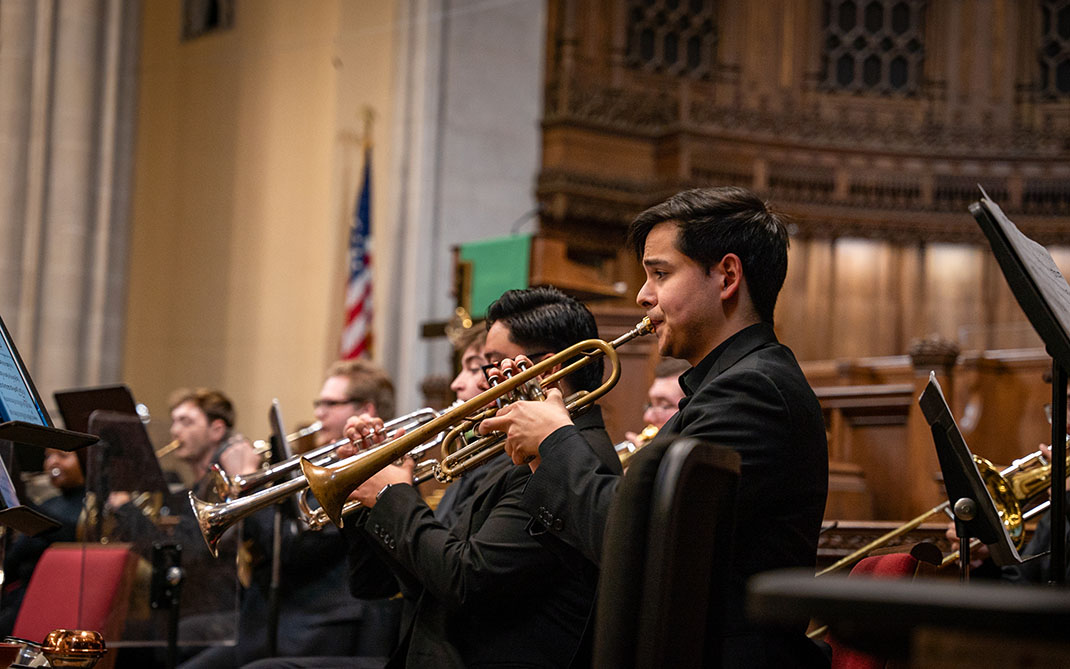Independent Contractor
UNCSA Policy 301 provides the policies and procedures for the engagement of independent contractors.
Application of Policy
All persons rendering services to the University must be paid through the Payroll System except those contracted as an independent contractor.
Types of Employment Relationships
There are five common types of employment relationships recognized by the Internal Revenue Service. These relationships are:
Individuals who follow an independent trade, business or profession, are generally not employees. This category includes lawyers, contractors, subcontractors, accountants, auctioneers, and others who offer their services to the general public. The general rule is that an individual is an independent contractor if the payer has the right to control or direct only the result of the work and not what will be done and how it will be done.
Under common-law rules, anyone who performs services for you is your employee if you can control what will be done and how it will be done. The University’s faculty and staff are in this category. If there is an employee relationship, it makes no difference how it is described. Consequently, it does not matter if the employee is called an employee, agent or independent contractor. It does not matter how the payments are measured, how they are made, or what they are called. Also, it does not matter if the employee is full-time, part-time or is hired only for a short period. Two of the usual characteristics of an employer-employee relationship are that the employer has the right to discharge the employee and the employer supplies the tools and a place for him/her to work. In an employee relationship it does not matter whether the individual is employed full-time or part-time and there is no distinction between classes of employees, i.e., managers, supervisors or other types of personnel.
A statutory employee is an individual who works for an employer but is not an employee within the meaning of a common-law employee as described above. Examples include someone paid on commission, full-time life insurance sales agents and full-time traveling or city salespersons. This employment relationship is generally not applicable for the University. If additional information is needed concerning this type of employment relationship, the Controller’s Office should be contacted.
This category includes direct sellers, licensed real estate agents, and certain companion sitters. This employment relationship is generally not applicable for the University. If additional information is needed concerning this type of employment relationship, the Controller’s Office should be contacted.
In most cases, individuals who serve as public officials are government employees. Therefore, the government entity is responsible for withholding and paying Federal income tax, social security and Medicare taxes. Examples include a member of a legislative body such as a state legislature, county commission, city council, school board, utility or hospital district, a judge, a justice of the peace, a county or city attorney, a marshal, a sheriff, a constable and a registrar of deeds.
Criteria to Distinguish Employee or Independent Contractor Relationship
On the Business Forms web page, see "Contractual Services" for forms and resources.
Tax Reporting and Withholding Requirements
The University does not have to withhold or pay income or social security taxes on payments made to independent contractors. Individual independent contractors are responsible for these taxes as well as the self-employment tax. Independent contractors will be sent a Form 1099-Misc at the end of the year if the payment made during the year aggregate to more than $600. Backup withholding may be required if the independent contractor does not furnish the University with a Taxpayer Identification Number.
The University withholds 4% income tax from nonresident contractors who are paid more than $1,500 during a calendar year for a performance, an entertainment, an athletic event, a speech, or the creation of a film, radio, or television program. Nonresident entities are defined as: a foreign (out-of-state) limited liability company, a foreign limited partnership.
The University’s faculty and staff are in this category. Federal income taxes, state income taxes, FICA taxes, and Medicare taxes are withheld on payments made to common-law employees. In addition, the University is responsible for the employer’s matching portion of FICA and Medicare taxes and must make contributions to the Employment Security Commission or to the Trust Fund set up to cover payments to eligible unemployment compensation recipients. Common-law employees will receive a Form W-2 at the end of the calendar year for all compensation received during the year.
The Controller’s Office should be contacted if it appears this category of employee relationship exists.
The Controller’s Office should be contacted if it appears this category of employee relationship exists.
The Controller’s Office should be contacted if it appears this category of employee relationship exists.
4% NC withholding on nonresident personal services
North Carolina GS 105‐163.1 and GS 105‐163.3 requires income tax to be withheld at the rate of 4% from payments of more than $1,500.00 paid during a calendar year to nonresident individuals or nonresident entities for personal services performed in North Carolina in connection with a performance, an entertainment or athletic event, a speech, or the creation of a film, radio, or television program. Additionally, NC requires income tax to be withheld at the rate of 4% from payments of more than $1,500.00 paid during a calendar year to ITIN contractors for services provided within the State. See NC-30 for additional information.
Examples of Services Subject to 4% withholding:
- Performances
- Concerts/entertainment
- Athletic Event
- Speeches ‐ (includes any speech that amuses, entertains, or informs is subject to the withholding requirement. This includes instructors at seminars that are open to the public for an admission fee or are for continuing education.)
- Creation of a film, radio or TV program
- All services performed by an ITIN holder/contractor
Who is subject to the NC 4% withholding?
- Nonresident Contractors
- Nonresident Entities
- ITIN Holders
Contractors Exempt from 4% withholding:
- Corporations or Limited Liability Companies that have obtained a certificate of authority from the Secretary of State.
- A partnership that has a permanent place of business in North Carolina
- Any entity that is exempt from North Carolina corporate income tax under G.S. 105‐130.11. The entity must provide verification of this tax exemption to the payer, such as a copy of the organization's federal determination letter of tax exemption or a copy of a letter of tax exemption from the Department of Revenue.
- An individual who is an ordained or licensed member of the clergy
- Resident of North Carolina
Withholding Requirement:
Nonresident individuals/entities: Withholding is only required if the nonresident
individual or nonresident entity is paid more than $1,500.00 during the calendar year.
The tax must be withheld from any nonresident individual or nonresident entity (C
or S corporation, partnership, or limited liability company) receiving personal services
compensation in connection with a performance, entertainment, athletic event, a speech
or the creation of a film, radio, or television program.
For ITIN Contractors, withholding is only required if the ITIN contractor is paid compensation of more than $1,500.00 during the calendar year. If, at the time payments are made, the payer doesn't believe the payments will exceed the $1,500.00 level, then no withholding is required. However, if payments made later in the year cause the total of payments received to date to exceed $1,500.00 then the payer is required to withhold the 4% from the payment that caused the total to exceed the $1,500.00, as well as any subsequent payments. The payer is not required to withhold tax from the additional compensation to make up for the tax that was not withheld on earlier payments. If the payer expects to pay a contractor more than $1,500.00 during a year, the payer then must withhold 4% from all payments issued even if the first payment does not exceed the $1,500.00.
For any other questions regarding independent contractors, please contact Jarrett Bailey at baileyj@uncsa.edu or Matt Horvat at horvatm@uncsa.edu.





